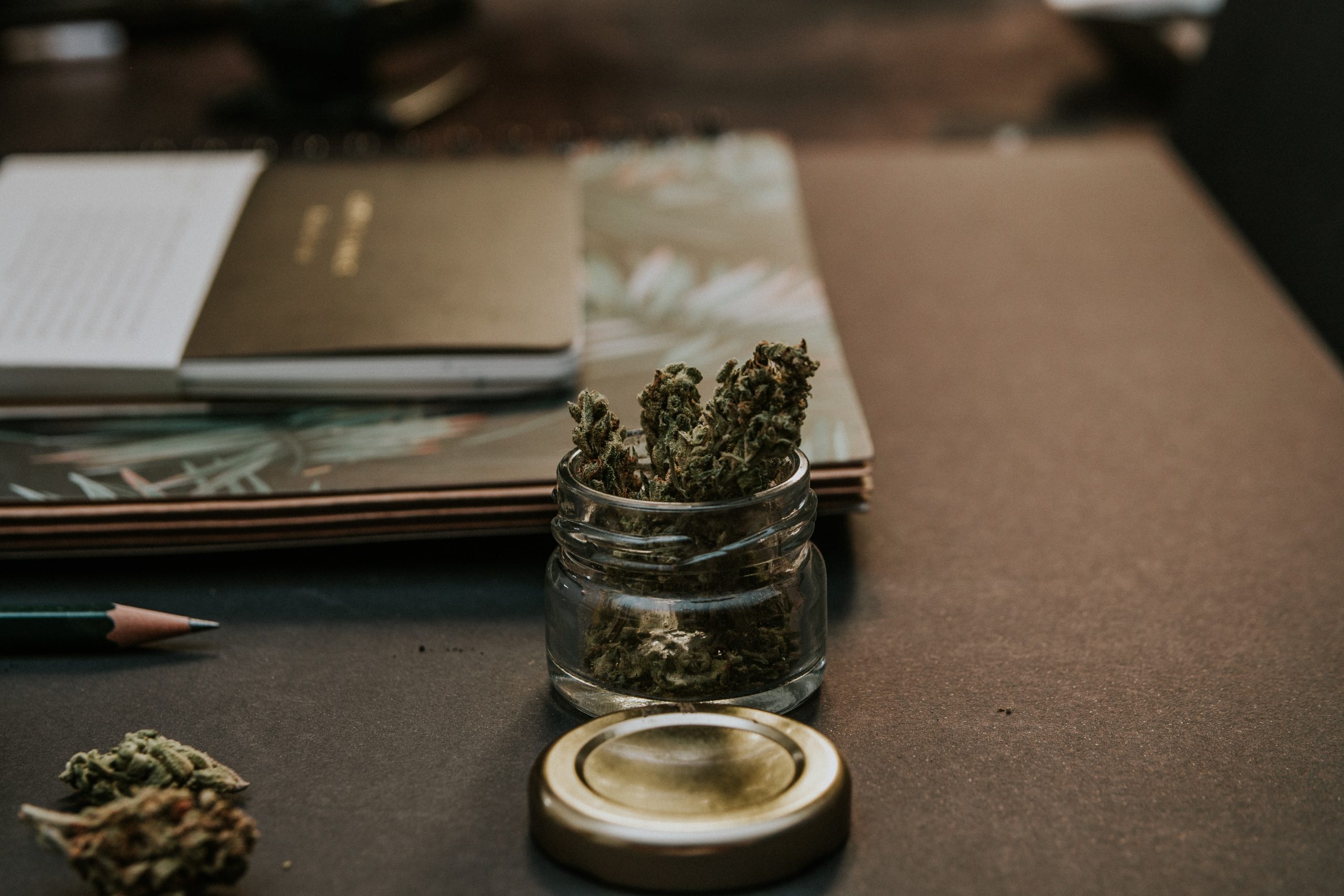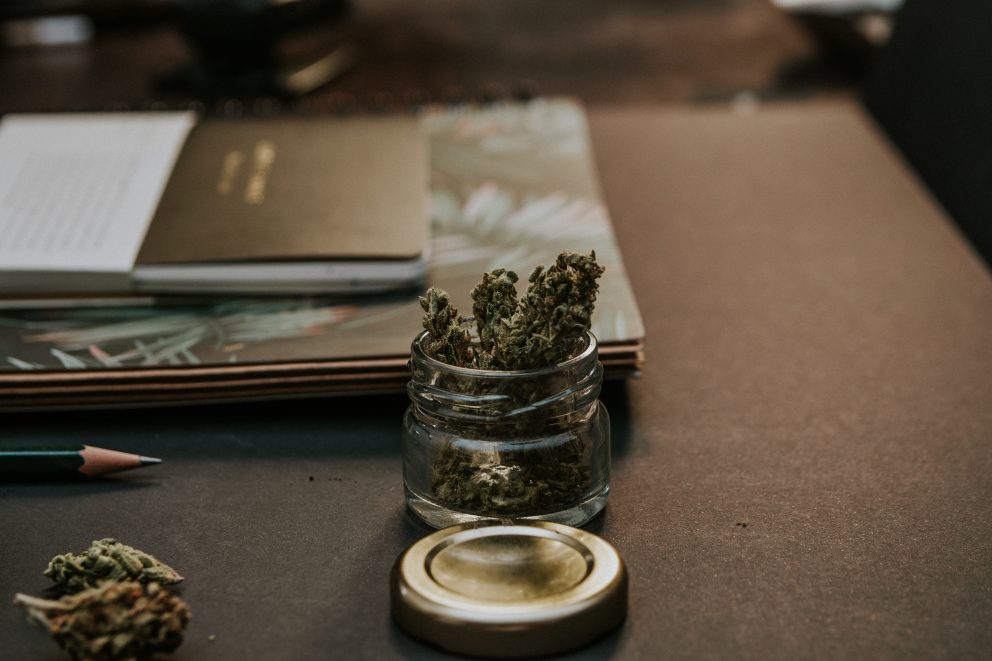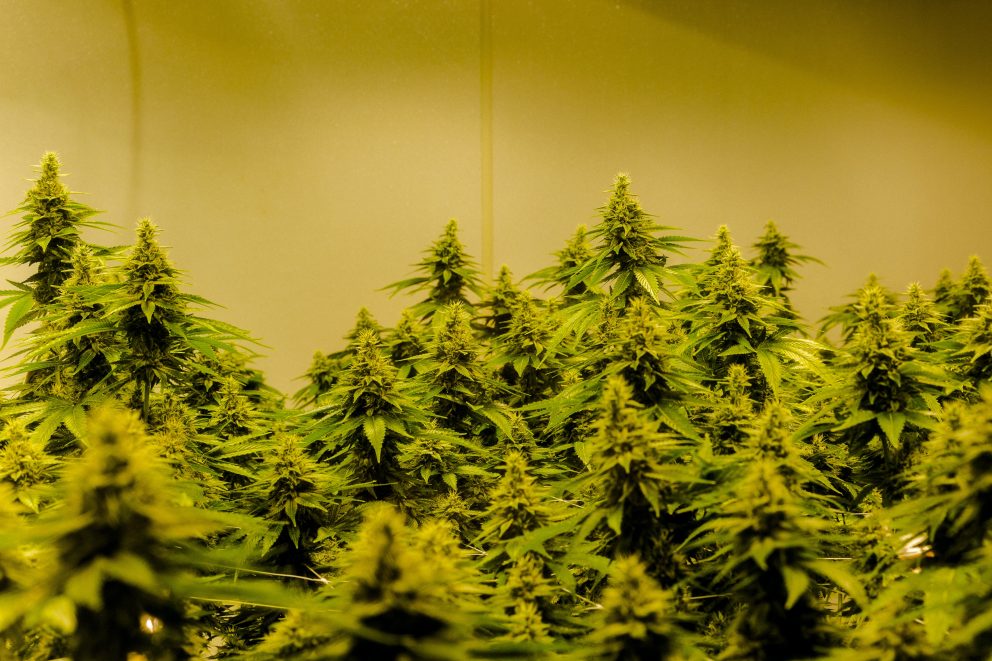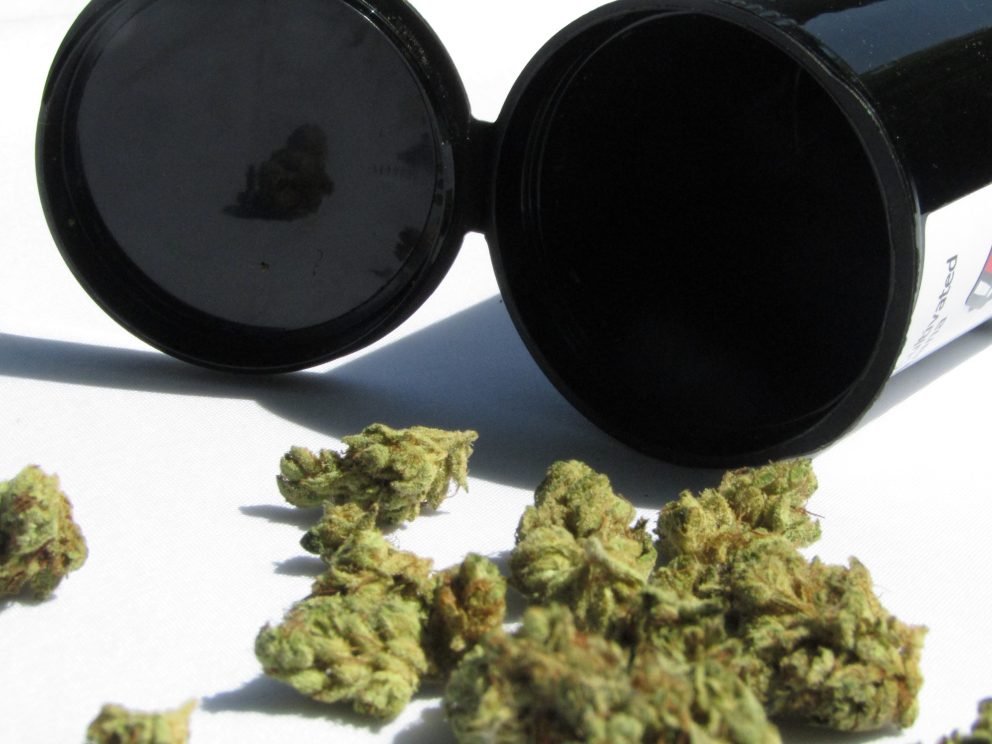
Is Weed Legal in Oklahoma? Plus Oklahoma Weed Laws & Oklahoma Marijuana Legalization Efforts in 2023

Photo by Yash Lucid
Is Weed Legal in Oklahoma?
While many forms of medical marijuana are legal in Oklahoma, weed is not legal in Oklahoma for recreational use. In order to gain access to medical marijuana dispensaries, you must first have a medical marijuana card. Apply here today!
Oklahoma Marijuana Legalization
Weed legalization has shifted from a pipe dream to what seems to be a political inevitability. What was often pushed for by offshoot political groups is now being backed by major politicians and community groups. Where does Oklahoma stand on marijuana? Is weed legal in Oklahoma?
There are many intricacies to cannabis law that the average person may not immediately understand. There is no simple switch from illegal to legal. Marijuana exists in a unique legal position that residents may need to research to fully understand to avoid inadvertently breaking the law.
Understanding the law can help ensure that you follow the letter of the law and avoid legal issues. Plus, it gives you an opportunity to vote on the cannabis legislation you support.
This post will break down how cannabis law works, the current state of Oklahoma marijuana law, and the key steps for you to legally obtain cannabis in the Sooner State. But first, let’s look at how cannabis can and does get legalized.
Apply for a Medical Marijuana Card Online Today
Join over 100,000 patients who have chosen Green Health Docs as their medical cannabis doctors. We have a 99% approval rate and offer a 100% money back guarantee!
How Do Cannabis Laws Work?
Marijuana remains federally illegal until the federal government makes major changes to the law. That being said, cannabis is often legalized on the state level. There are three ways marijuana can have its legal status changed.
Marijuana is a controlled substance but this status can be changed by laws passed by the state legislature. Cannabis can be approved for medical use, recreational use, or decriminalized. Each legal status varies and can take certain steps to implement.
There needs to be a framework established to accommodate legal sales of cannabis in a state. For example:
- Who can legally grow cannabis?
- Where can you open dispensaries?
- What will the taxes be on legal marijuana products?
- What medical conditions can be approved for marijuana prescriptions?
Besides changing the status of marijuana as a controlled substance, there needs to be some bureaucracy established and decisions about various factors. There needs to be changes to various laws before a state can open itself up to legal marijuana sales.
One big barrier to legalization can often be the wording of laws or the lack of proper planning. If there is unclear or confusing language in a bill it can die before it gets passed into law. Many states have almost legalized cannabis by popular vote or in the House but it gets blocked or voted against before it can be signed into law.
The first and simplest form of legalization is decriminalization. This is a not-quite-legal form of legalization where the penalties for marijuana possession get downgraded. Rather than a felony, it’s downgraded to a misdemeanor or in some cases even just a ticketable offense. This helps keep people from serving jail time or facing heavy criminal charges for using marijuana.
President Joe Biden released a statement about marijuana reform. He officially pardoned people federally charged with marijuana-based crimes, encouraged states to do the same, and discussed his plans to revisit marijuana’s status as a controlled substance. Until then, marijuana will continue to be managed on the state level.
Medical marijuana is the more common form of legalization. Science has been galvanized by the health benefits of cannabinoids, terpenes, and flavonoids and a major push has been to provide these beneficial biological compounds to patients. Medical marijuana often requires establishing a statewide program.
Decisions ranging from the medical issues that can receive prescriptions to the doctors allowed to dispense medical marijuana require formally establishing an entire program. Governments also need to decide which state department will manage their medical marijuana program, and vital logistics for how the program will run.
Some states dip their toes in the water with a low-THC program. This allows people to access the benefits of cannabis compounds without too much concern about inebriation which opens up concerns over regulation. Other states have chosen to legalize CBD.
After the 2018 Farm Bill, CBD and synthetic versions of THC made from hemp like delta-8 and delta-10 have been legalized nationally.This has helped drive a growing demand for cannabis products both medically and recreationally.
It can take months to even years to fully establish a functioning medical marijuana program after the legalization for medical use has passed. There needs to be many decisions made to avoid legal confusion.
The success of many medical programs can lead to the final form of legalization: legalizing cannabis for recreational use. When legalized for recreational use, residents can purchase cannabis like cigarettes or alcohol. It’s regulated but no longer a controlled substance so it’s not illegal to use, buy, or possess. Selling cannabis still remains regulated and laws must be established to manage that process.
Recreational cannabis can often be the logical progression as it introduces states to a whole new revenue stream. That being said, a significant number of laws need to be changed to accommodate recreational cannabis such as the status of cannabis as a controlled substance and the regulations for possession and the selling of it.
So where does Oklahoma stand?

Photo by Joel Arbaje
Is Marijuana Legal In Oklahoma?
Currently, Oklahoma has only legalized medical marijuana. Oklahoma has established a rather liberal medical marijuana policy where any medical condition can qualify for a medical marijuana license. There are roughly 12,000 marijuana based businesses and nearly 400,000 enrolled patients.
Marijuana is not legal for recreational use. There was a recent pending law on the docket that failed to get the required number of votes. Given this response, there has been talk of the potential for Oklahoma voters or legislators to potentially roll back some of these laws or introduce heavier legislation. Oklahoma’s medical marijuana program is more liberal than most in the state.
Is Marijuana Legal In Oklahoma 2023?
Like many states with large scale medical marijuana programs, Oklahoma did consider recreational marijuana legislation. An attempt to legalize recreational cannabis did appear on the ballot of the March 7, 2023 special election. Oklahoma State Question 820 was up for a vote and the results were pretty shocking.
Will Oklahoma Go Recreational 2023?
Oklahoma State Question 820, if passed, would have legalized the purchasing, possession and consumption of cannabis recreationally throughout Oklahoma. Surprisingly, it was rejected by a majority of the voters in the election with 61% of voters voting against this measure.
Oklahoma Medical Marijuana Laws
In April 2015, Oklahoma Governor signed HB 2154 allowing the legal sale of any CBD oil with less than 0.3% THC. This fully legalized CBD oil manufactured from industrial hemp which made it legal to be purchased over the counter. In 2018, the aforementioned Farm Bill legalized CBD products, if made from hemp vs. marijuana, legal across the country.
Oklahoma State Question 788, a.k.a. The Medical Marijuana Legalization Initiative ultimately passed with 57% of the vote which made Oklahoma the 30th US state to legalize medical use of cannabis. It also established the regulation system for Oklahoma’s medical marijuana program which became formally established as the Oklahoma Medical Marijuana Authority.
Oklahoma residents aged 18 and up are eligible for a medical marijuana adult patient license. To obtain their license they require proof of identity, proof of residency, a photo and a signed Physician Recommendation Form (Adult Patient) from an authorized physician.
Oklahoma medical marijuana licenses are valid for two years and can easily be renewed online.
How to Get an Oklahoma Medical Marijuana Card
Residents of Oklahoma can easily sign up for a medical marijuana license and only need what is essentially a prescription from a certified physician. Residents can begin their application for a medical marijuana license using the state’s licensing portal. Once they’ve received a prescription for cannabis from an approved physician they can apply for their license. For help you can begin the process online here.
The price for a license involves a nonrefundable patient license application fee of $100 plus a $4.30 credit card processing fee. There is a discounted rate of $20 plus a $2.50 credit card processing fee for people enrolled in Medicaid (SoonerCare) or Medicare, or have the legal status as a 100% covered disabled veteran.
Oklahoma Medical Marijuana Doctors
In order to find a doctor that’s approved by the Oklahoma Medical Marijuana Authority you can start with Green Health Docs. This simple process can help save you time and help you quickly obtain your medical marijuana license and access to legal medical cannabis.
When Will Oklahoma Go Recreational?
Oklahoma has one of the more liberal medical marijuana programs in the country. There are no restrictions on what medical conditions qualify for a medical marijuana prescription. It is at your doctor’s discretion. Many states have outlined a finite number of health conditions that are eligible for cannabis prescriptions.
That being said, there has been some pushback. Recent attempts at legalization have been met with criticism and failed to get passed into law. Additionally, there are mixed emotions about marijuana in the state. There is a chance for legislation to be introduced that could tighten up some of Oklahoma’s more liberal regulations or formalize the program a bit more.
Is Oklahoma A Recreational State?
Oklahoma is not currently a recreational state. However, compared to other states with stricter medical marijuana programs that either restrict patients to only low-THC like Texas, have a shortlist of medical conditions, or have made smokable cannabis illegal, Oklahoma is quite liberal.
Doctors can approve medical marijuana for any patient as long as they follow the proper protocols. Time will tell if the medical marijuana program’s popularity will encourage voters and legislators to legalize recreational cannabis.

Photo by Ndispensable
How Many Dispensaries Are In Oklahoma?
Despite being one of the least populated states that has legalized medical marijuana, Oklahoma has the largest number of licensed dispensaries. There are 2,835 which is more than the number of gas stations across the state.
Oklahoma Dispensary List
The Oklahoma Medical Marijuana Authority has a comprehensive list of not just all dispensaries but all of the cannabis related businesses and active licenses. The state prides itself on transparency. For the list of dispensaries click here.
Final Thoughts
Oklahoma is fairly liberal as far as state medical marijuana programs go. However, that does not necessarily mean that residents and lawmakers are keen to fully legalize cannabis in the state. Legalization can be complex and involve a lot of moving parts. As medical marijuana has been legalized, it’s created quite a boon with a thriving legion of medical marijuana dispensaries and cannabis-based businesses.
Time will tell if Oklahoma will join other states in fully legalizing recreational cannabis. However, the 2023 voting cycle has shown that voters do not want recreational cannabis. Cannabis legalization can be confusing and nuanced.
If you want to get your legal medical marijuana license in Oklahoma you can begin the easy process by clicking here. Find a doctor quickly, simply, and get help with submitting your application.
 This article has been reviewed by Dr. Anand Dugar, an anesthesiologist, pain medicine physician and the founder of Green Health Docs. Graduating from medical school in 2004 and residency in 2008, Dr. Dugar has been a licensed physician for almost 20 years and has been leading the push for medical cannabis nationwide.
This article has been reviewed by Dr. Anand Dugar, an anesthesiologist, pain medicine physician and the founder of Green Health Docs. Graduating from medical school in 2004 and residency in 2008, Dr. Dugar has been a licensed physician for almost 20 years and has been leading the push for medical cannabis nationwide.
